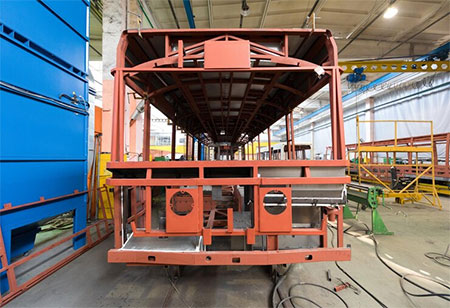
Diesel generators are robust and reliable sources of backup power, co- mmonly used in various applications ranging from residential homes to industrial facilities. Central to their operation is the alternator, which converts mechanical energy from the diesel engine into electrical energy. Proper care and maintenance of the alternator are essential for ensuring the reliable performance and longevity of the diesel generator system. Here are some essential tips for diesel generator alternator care:
Regular Inspections: Conduct regular visual inspections of the alternator components to check for signs of wear, damage, or corrosion. Inspect the alternator housing, bearings, brushes, terminals, and wiring for any abnormalities or loose connections. Look for signs of overheating, such as discoloration or burning smells, which may indicate underlying issues that require attention.
Cleanliness: Keep the alternator and surrounding area clean and free from dust, dirt, and debris that can accumulate over time and affect performance. Regularly remove dirt and grime from the alternator housing, cooling fins, and ventilation openings using a soft brush or compressed air. Ensure that the alternator is free from obstructions and airflow is unimpeded to prevent overheating.
Bearing Maintenance: Proper lubrication of the alternator bearings is essential for reducing friction, minimizing wear, and extending bearing life. Follow the manufacturer's recommendations for lubricating the bearings with the appropriate type and quantity of lubricant. Monitor bearing condition regularly and replace worn or damaged bearings promptly to prevent excessive noise, vibration, and premature failure.
Brush Inspection and Replacement: The brushes in the alternator play a critical role in conducting electrical current between the rotor and stator windings. Inspect the brushes regularly for wear, uneven wear patterns, or signs of arcing. Replace brushes as needed to maintain proper contact with the slip rings and prevent voltage drop or electrical arcing that can damage the alternator.
Voltage Regulation: Monitor voltage output from the alternator to ensure it remains within acceptable limits under varying load conditions. Use a multimeter or voltage regulator to measure and adjust the output voltage as needed to maintain stable electrical supply. Voltage regulation is crucial for protecting sensitive electrical equipment and preventing damage from overvoltage or undervoltage conditions.
Cooling System Maintenance: Proper cooling is essential for dissipating heat generated during alternator operation and maintaining optimal operating temperatures. Inspect the cooling fan, radiator, and coolant levels regularly to ensure adequate cooling capacity. Clean or replace air filters as needed to prevent airflow restrictions and ensure efficient cooling performance.
Protection from Moisture and Corrosion: Moisture and corrosion can damage alternator components and reduce performance over time. Take precautions to protect the alternator from moisture ingress by sealing openings, using moisture-resistant coatings, and storing the generator in a dry, well-ventilated location. Consider installing desiccant breathers or humidity control devices to reduce moisture levels inside the alternator housing.
Professional Maintenance: While many aspects of alternator care can be performed by operators or maintenance personnel, certain tasks may require specialized knowledge and equipment. Schedule regular maintenance inspections by qualified technicians or authorized service providers to perform comprehensive diagnostics, testing, and repairs as needed. Professional maintenance can help identify potential issues early, prevent costly downtime, and ensure optimal performance of the diesel generator alternator.
In conclusion, proper care and maintenance of the diesel generator alternator are essential for ensuring reliable performance, maximizing efficiency, and prolonging the lifespan of the generator system. By following these essential tips for alternator care, operators and maintenance personnel can minimize the risk of failures, optimize performance, and ensure uninterrupted power supply during emergencies and blackouts. Regular inspections, cleanliness, bearing maintenance, brush inspection and replacement, voltage regulation, cooling system maintenance, protection from moisture and corrosion, and professional maintenance are all key aspects of effective alternator care that contribute to the overall reliability and longevity of diesel generator systems.
We use cookies to ensure you get the best experience on our website. Read more...